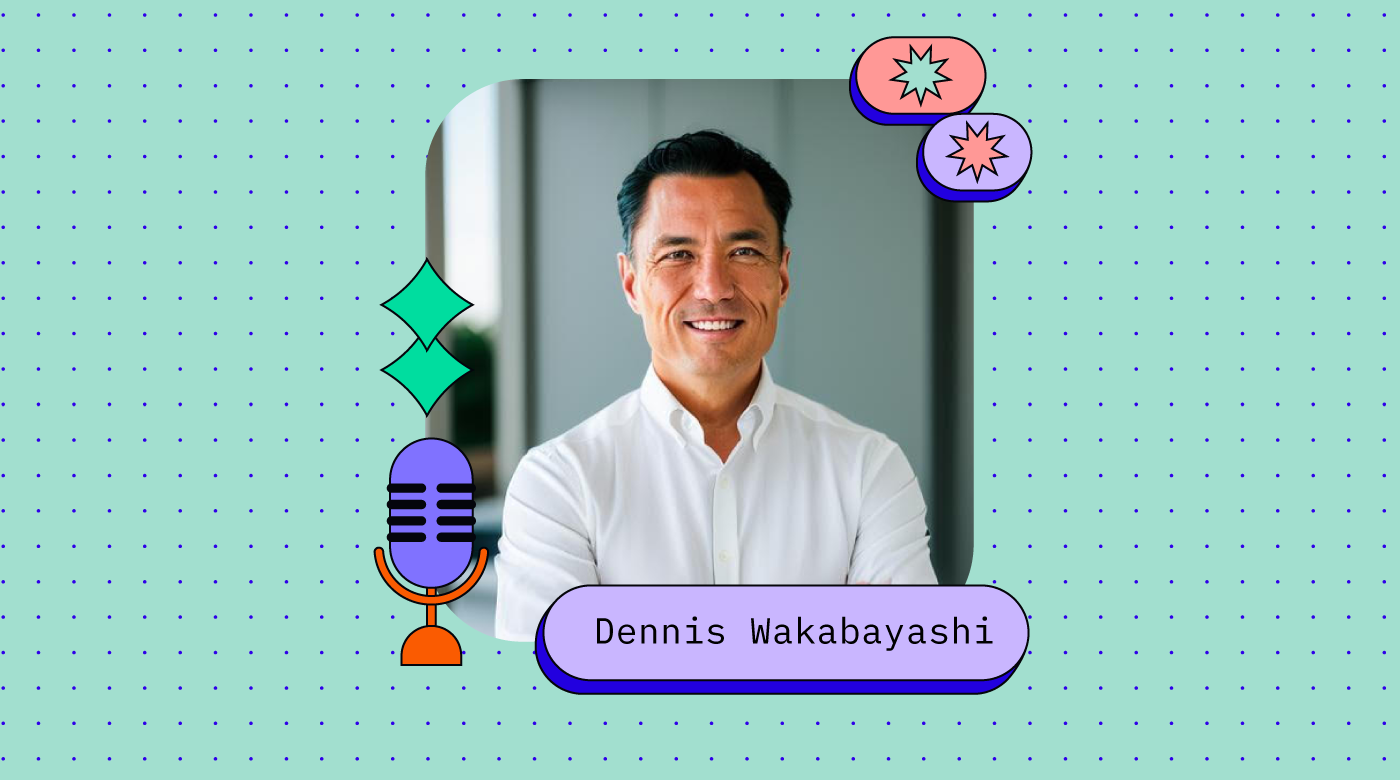With over 70,000 dedicated LinkedIn followers and clients ranging from FedEx to McDonald's to AT&T, Dennis Wakabayashi's influence in the CX realm is wide, varied and undeniable. The CX Lead sat down with Dennis to learn more about the man recognized as the "Global Voice of CX."
Tell us the story of how you got involved in customer experience. How did your career lead you here?
From my early days working with big names like FedEx, AT&T, and McDonald’s, I’ve been deeply involved in the customer experience world. These industry leaders provided a front-row seat to the intricacies of global customer experience.
But as I journeyed on, I felt a compelling desire for storytelling.
Beyond the corporate boardrooms, I wanted to unearth the genuine, human stories that often go unheard. This drive led me to the world of documentary-making with “Empathy Echoes”. It’s not just about highlighting CX but more importantly, capturing those human truths that unite us all, transcending borders and cultures.
From collaborating with major brands to venturing into documentaries, my path has always been guided by a pursuit of understanding and amplifying the shared human experiences that bind us together.
In which industries, verticals or sectors have you focused your CX career?
Over the course of my career in customer experience, I've had the privilege of working in multiple industries and sectors, each offering its own unique set of challenges and learnings. Some of the prominent ones include:
Logistics and Delivery: Working with FedEx, I immersed myself in the world of global logistics, understanding the intricacies of timely deliveries and the pivotal role of customer trust in this sector.
Telecommunications: My assignments at AT&T provided insights into an industry, emphasizing the importance of seamless connectivity and the evolving demands of digital communication.
Hospitality: Working for McDonald's, I came to understand the fast-paced world of quick-service restaurants. Here, speed, consistency, and brand loyalty are the experiences that matter.
Global Economy: My leadership at international events like CEM Africa and CX NXT UAE, and content creation with ground-breaking projects such as Expo City Dubai, underscored the significance of creating memorable experiences.
While these are some of the key industries I've engaged with, my overarching philosophy has always been to understand and elevate the human experience, regardless of the sector. This universality of customer experience principles hold true for all of us.
Why do so many companies struggle with making CX a priority? What are some common mistakes companies make?
Many companies grapple with making CX a priority because they're often entangled in the immediate demands of the bottom line, overlooking the long-term value of a strong customer relationship.
Additionally, in the rush to globalize and digitize, some firms lose sight of the foundational harmony between customer, employee, and the broader human experiences.
Common mistakes companies make include:
Over-automation: Relying too heavily on technology can sometimes strip away the personal touch essential for genuine customer engagement.
Neglecting Employee Input: Frontline employees interact directly with customers, and their feedback is the energy that powers the corporate machine.
Short-term Focus: Prioritizing short-term gains over the enduring benefits of positive human experiences for all involved distracts companies from truly winning.
Generic Approaches: Offering one-size-fits-all solutions without considering unique customer needs or desires.
Lack of Adaptability: Not staying agile and open to evolving customer preferences and market shifts.
In essence, while chasing immediate results, many companies miss the bigger picture: nurturing and valuing the interconnectedness of customer, employee, and human experiences is the key to sustainable success in the modern economy.
You've been selected to give a keynote address at a major CX conference. What topic will you discuss and what major points will you touch on?
My Title: "Humancentricity”: A guide to Unified Economic Growth,"
In the talk, we would share insights to address the experiential similarities between the "haves" and "have-nots."
I’d advocate for the transformative power of unified, positive interactions to promote equitable and significant growth.
Through these shared experiences, I would guide the audience to understand the potential for a inclusive and prosperous global economy.
Have you seen, firsthand, any AI impacts on the practice of CX? What impacts are you expecting in the next few years?
In my involvement with CX, I've observed AI, especially tools like generative AI and large language models, as powerful catalysts for unity.
By assisting our customer service agents in navigating complex issues, these tools act as supportive partners, enhancing the human touch rather than replacing it.
As we move forward, I'm optimistic about a shift in how we perceive customer experiences. With the seamless integration of AI and human interactions, we're transitioning from isolated customer experiences to "shared experiences."
This means that interactions are no longer just between a brand and its customer, but are co-created moments, shaped by the collaboration of AI insights and human empathy. Such shared experiences will not only foster deeper connections but will also redefine the very fabric of customer engagement, making it more collaborative, intuitive, and enriching for all parties involved.
Have you seen, firsthand, any AI impacts on the practice of CX? What impacts are you expecting in the next few years?
In my CX career, a few key skills have really made the difference:
Empathy: Truly understanding what people feel and need has been at the heart of my work.
Listening: It's not just about hearing but really tuning into what people are saying.
Adaptability: The world of CX (as is life) is always changing, so being able to roll with those changes has been crucial.
Big Picture Thinking: Being able to see the larger goal while helping people with the “details” helps everyone involved.
Teamwork: Collaborating with diverse teams ensures we're all growing together.
Always Learning: Staying awake and continuously picking up knowledge keeps me in the game.
Clear Communication: Being able to share ideas clearly makes everything run smoother.
In a nutshell, while knowing the tech and tools is important, it's these human-centered skills that have been the foundation of my success in CX.
What's the best advice you'd give someone just starting out in their CX career, or just starting to transition from a related discipline like call-center or customer service management?
The best advice I can give, I borrowed from the famous poet Deltron 3030 who said: "Copycats finish last in the human race."
In the world of CX, it's a reminder to be genuine and follow your own path. Authentic connections matter more than being part of the crowd.
When did CX as a discipline pop up on your radar? How have you seen it evolve or change over that period of time?
CX first caught my attention as something more personal than just another business term.
It felt like a way for me to align my own experiences with those of others, to really "get" what people were going through.
Over the years, I've seen it shift from handling customer issues to truly understanding and enhancing their entire journey.
And in that evolution, I realized that It's not just about making sales or solving problems; it's about making real, positive changes in people's lives.
It's been rewarding to see how my involvement in the CX community has continually evolved, and I'm excited to see where it goes next.
What trend do you think will be most impactful in (your niche of) the CX space over the next three years?
In the next few years, one of the bigger trends. will likely be "Holistic Human-Centric Design." Instead of seeing customers as numbers, we'll obtain more understanding of their real-life stories and adapt more to their evolving needs.


